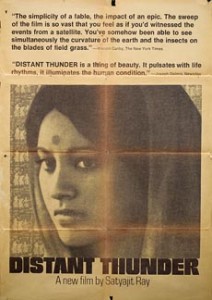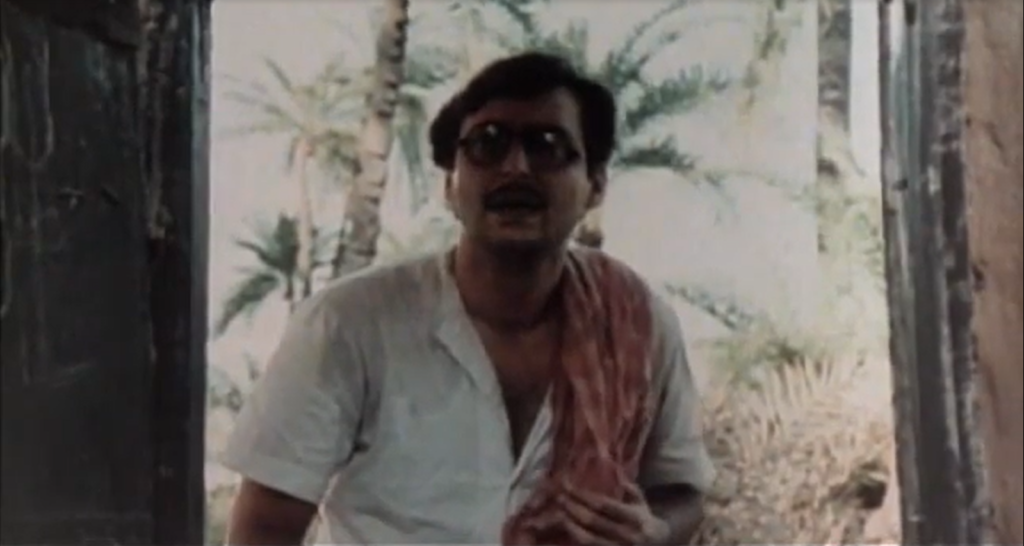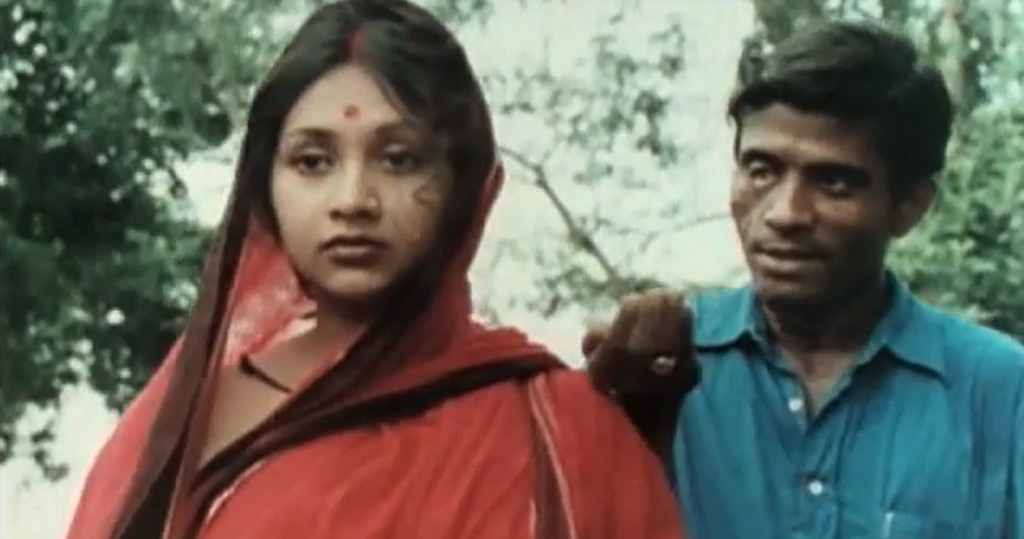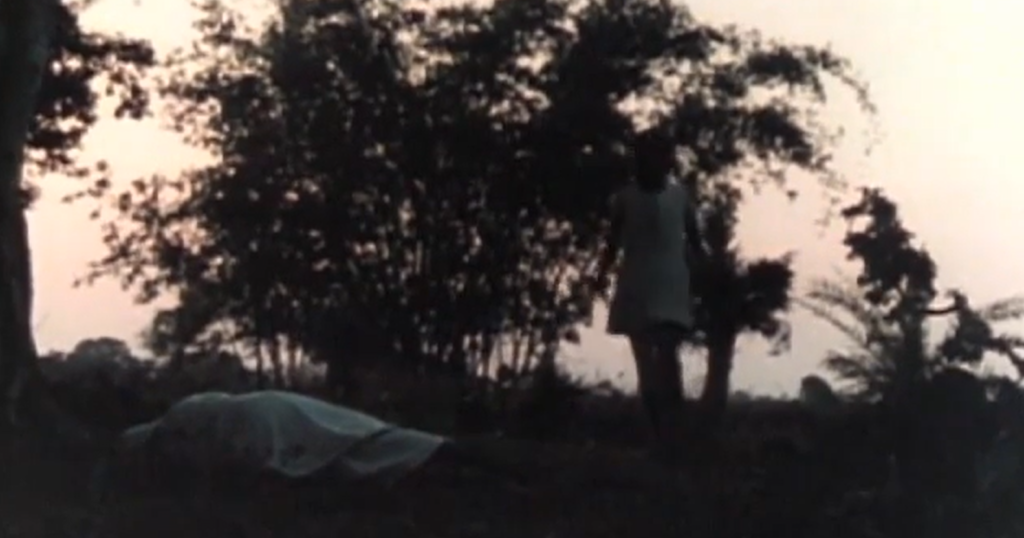|

Synopsis:
In 1943 India, a young Brahmin named Gangacharan (Soumitra Chatterjee) and his wife (Babita) settle in a village, where Gangacharan assumes the roles of teacher, healer, and priest. But when war affects the village in the form of famine, Gangacharan finds that his privileged status will not guarantee rice for his family.
|
|
Genres, Themes, Actors, and Directors:
- Character Arc
- Class Relations
- India
- Satyajit Ray Films
- Village Life
- World War II
Response to Peary’s Review:
As noted by Peary, this “lovely, underrated film by Satyajit Ray” possesses “breathtaking” cinematography by Soumendu Ray, and “many moments that will stay with you.” It tells the heartbreaking yet fascinating tale of a tragic moment in Indian history when, as summarized in the closing subtitles, “Over five million died of starvation and epidemics in Bengal in what has come to be known as the man-made famine of 1943.” Due to the British government cornering civilian food supplies in order to feed its armies, villagers were unable to secure even a subsistence-level amount of rice, and it was soon unavailable at any price.
Despite the enormity of the subject matter, Ray characteristically takes a deeply personal approach, focusing primarily on the character arc of the main protagonist (Gangacharan), who gradually learns that, when it comes to survival in times of war, caste matters not at all. Equally compelling, however, are the subplots about Gangacharan’s wife Ananga (Babita) and her friends, who do what they can to bring food to their households — for Ananga, this means lowering herself enough to help mill rice, while her married friend Chutki (Sandhya Roy) sleeps with a disfigured man (Noni Ganguly) in exchange for some of his precious supply. Ultimately, Ray shows both the worst and the best sides of humanity in his film, as each character discovers what he or she is willing to compromise for his own survival — and for the survival of others.
Redeeming Qualities and Moments:
- Soumitra Chatterjee as the proud Brahmin who undergoes a change of heart

- Babita as Gangacharan’s beautiful wife

- Beautiful cinematography of Indian countryside

Must See?
Yes. Though not all critics agree, I believe this foreign gem is further evidence of Satyajit Ray’s incomparable gifts as a filmmaker, and should be seen by all film fanatics.
Categories
- Foreign Gem
- Important Director
Links:
|
One thought on “Distant Thunder (1973)”
First viewing – a once-must, for its unique place in cinema history and world history.
This has not been an easy film for me to find. (I just watched it now since it happened to show up on YouTube…where it’s sometimes possible to happen upon hard-to-find films, if they’re not yanked off before you make time to watch them.) I had seen Ray’s ‘Apu Trilogy’ when I was a young film fanatic, but have only seen perhaps a few of his other films. (He made 37 – then, it seems, moved into tv films and writing stories/novels.)
My guess is that, perhaps, only the more adventurous film fanatics will seek out Ray’s films. There was a time when I wouldn’t have said such a thing – when foreign films seemed to be much more ‘in vogue’ and were (it seems to me, anyway) talked about much more frequently. Even now, I don’t often hear film buffs mention that they just watched something by Ingmar Bergman or Fellini (names you might expect to come up with some regularity), much less Satyajit Ray.
Nevertheless, Ray’s work should be known by film fanatics.
‘DT’ is an interesting work, and a compact one (at about 90 minutes). It doesn’t let on upfront what its storyline is…all the better, since we slowly feel the ‘distant thunder’ that will cause tragedy. As noted, it’s a story of survival – but it’s also (and mainly, I think) a story of a deeper humanity that can sometimes beckon: What do you do when you are called-on to remain the best person you can be, even when you are desperate?
To a large degree, watching ‘Distant Thunder’ is a humbling experience.
And it’s also a rather accessible film, for those unfamiliar with the culture – even if some of the subtleties may be elusive.
All told…well worth a watch.